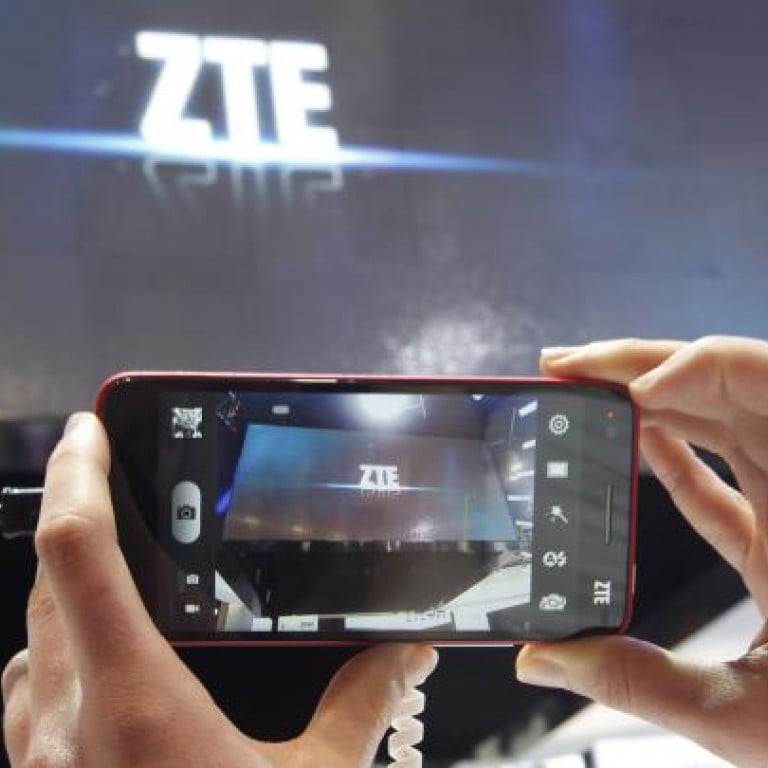Leading telecoms equipment makers ZTE (
0763.HK; Shenzhen: 000063) and Huawei are making new tactical moves on different fronts, with the former announcing a new tie-up with chip giant Intel (Nasdaq: INTC) as the latter defends its position in the lucrative European market. Since I'm writing about telecoms, I should also draw attention to the latest comments from leading mobile carrier China Mobile (
0941.HK; NYSE: CHL), whose new chairman once again has reaffirmed the company is actively looking for M&A opportunities abroad.
Let's start the discussion with a look at ZTE, which has
just announced it will become one of the first smartphone makers to develop models based on Intel's latest Atom processor unveiled just last month. (company announcement) After a late arrival to the mobile space, Intel is working desperately to gain a foothold in the fast-growing smartphone chipset market now dominated by names like Qualcomm (Nasdaq: QCOM) and Broadcom (Nasdaq: BRCM).
Intel rolled out another smartphone chip about a year ago as part of its bid to become a player in the space, working with second-tier manufacturers like Lenovo (
0992.HK) and Motorola (previous post); but I suspect those products never got very far, and this latest Atom initiative is Intel's latest effort to carve out a niche in the fast-growing smartphone market.
Last year I commended Lenovo for taking a risk by using the
new Intel chips, and I would again applaud ZTE for taking a similar risk with this newest chip, even if these new Intel-based smartphones don't sell very well. Intel is certainly a smart company and should eventually find a successful formula for smartphone chips, even if it did come late to the sector. When that happens, companies like ZTE and Lenovo should be in a good position to capitalise due to their early decisions to work with Intel.
Meantime, let's move on to Huawei, whose
latest press release quotes a top level company official from a speech this week in Europe reaffirming the company's commitment to intellectual property (IP) protection and using IP developed in Europe to benefit the local market. Release of the comments and the speech itself look largely like a public relations exercise as Huawei comes under fire in the EU on a number of fronts.
The EU has recently accused both Huawei and ZTE of receiving unfair subsidies from Beijing, which could result in
punitive tariffs against the companies. Huawei and ZTE also received a big setback last year when Washington banned the companies' networking equipment from the US due to security concerns; so it's possible some European governments could be considering similar moves.
Negative developments on either of these fronts could deal a huge setback to Huawei, which has had much more success in selling to Western European telcos than ZTE. This new PR-ish speech from Huawei is unlikely to influence any policy makers, in my view; but at least it shows that Huawei is aware of the sensitivity of its situation and is trying to take some action.
Lastly, let's take a quick look at China Mobile's latest M&A comments, which were made by its new Chairman Xi Guohua on the sidelines of the National People's Congress taking place in Beijing. Xi said China Mobile is determined to go global, and is eying opportunities around the world.
China Mobile has been making these kinds of comments for many years now, but has only made one minor acquisition in Pakistan so far despite having a huge reserve of cash. The main differences now are that Xi himself is new to his job, and also that some debt-heavy European telcos may be looking to sell some of their developing market assets to raise money. With those new factors in the mix, perhaps we could see China Mobile finally acquire some interesting global assets this year.
Bottom line: ZTE's new Intel tie-up looks like a good relationship-building exercise, while Huawei's latest comments in Europe are a PR move designed to counter negative sentiment in the EU.
To read more commentaries from Doug Young, visit youngchinabiz.com


